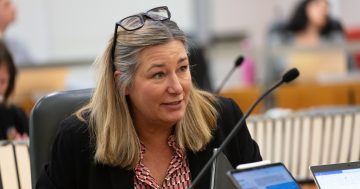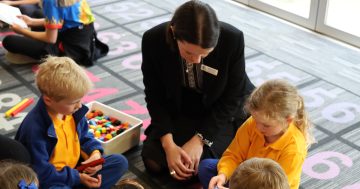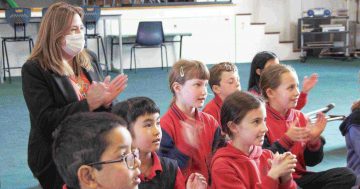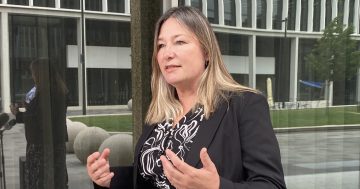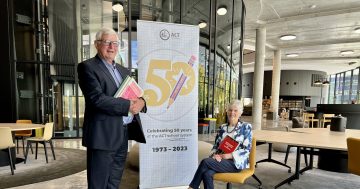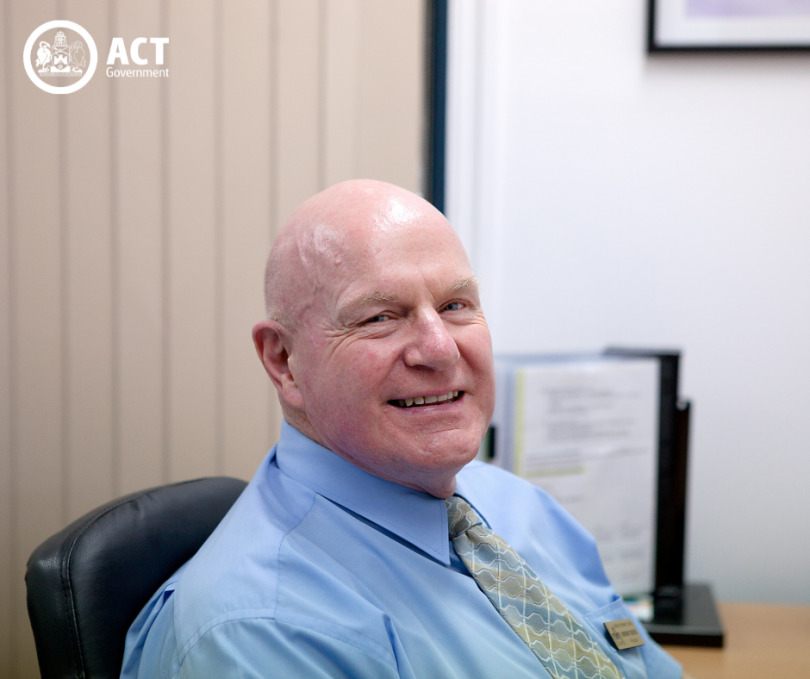
Murray Bruce is retiring after 40 years in teaching, including 16 years as principal of Gordon Primary School. Photo: ACT Education Directorate.
“You’re either the right person for teaching and find it very energising and fulfilling, or you’re not, which means you need to get out because it’ll kill you,” says Murray Bruce, who after more than 40 years of working in ACT education officially retired from his beloved role as principal of Gordon Primary School on Friday, 17 September.
Needless to say, he’s the right person.
Murray has been a principal at six ACT public schools, and held key roles as a leader of the Lanyon Cluster Executive and as a system leader, where he has coached and mentored many people who have gone on to become successful teachers and principals.
“I worked out pretty early on that teaching was a life vocation I wanted to do,” he says.
“I loved the idea of being able to help young children and give them opportunities in life, and to work with families and communities. This was only confirmed as I went on.”
Murray hails from New Zealand, where he undertook his training and secured his first teaching job in a small town at the top of the South Island. From there, it was onto the capital city of Wellington before crossing the Tasman to Australia in the early 1970s, where he’s been ever since, with the exception of a three-year stint at Christmas Island.
After more than 40 years working in ACT Education, Murray Bruce officially retired from his beloved role as principal of…
Posted by ACT Public Schools on Tuesday, September 21, 2021
“When I first started teaching in Australia back in the early 1970s, the Federal Government had just started the Commonwealth Teaching Service which helped to staff schools in the Northern Territory, ACT and the island territories,” says Murray.
The opportunity for teachers to apply to go to Christmas Island arose and Murray and his family jumped at it. They were there from 1981 to 1983.
Murray says another highlight for anyone involved in education in the early 1970s was the Whitlam government.
“Suddenly, things were catapulted into the 21st century,” he says. “The amount of resourcing for schools and for professional learning for teachers grew phenomenally.”
New mathematics had just come in, too.
“Up until then, everyone focused on arithmetic almost to the exclusion of other forms of maths such as geometry and algebra,” says Murray. “So there were major curriculum changes.”
Although Murray was in Darwin at the time much of this was unfolding, he says the ACT didn’t miss out on the excitement.
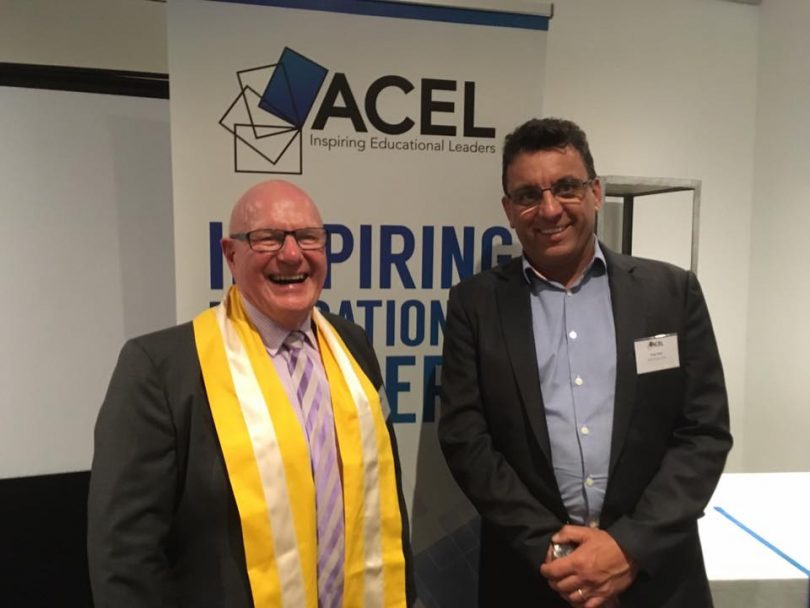
Murray Bruce was inducted as a Fellow of the Australian Council of Educational Leaders in 2017, one of the highest honours a school leader can receive. Photo: Gordon Primary School.
“This was when the ACT Schools Authority was formed, as they broke away from being part of the NSW Department of Education,” he says.
This breakaway gave the ACT education system more freedom in carving its own path and gave rise to local leaders such as Dr Hedley Beare, who better knew the needs and wants of the region.
“He was a very visionary leader and his thinking is still influential today,” says Murray. “In fact, the building where the teachers all go for their professional development in Stirling is called the Hedley Beare Centre for Teaching and Learning.”
Murray says this newfound independence got ACT education off to a very positive start and proved an alluring option for teachers. All these years later and he thinks the system is still well placed for the future.
“We have that advantage of being a small jurisdiction so we’re able to pull our people together more often and reflect on how things are going,” he says. “The curriculum is also very appropriate for the times we are in.”
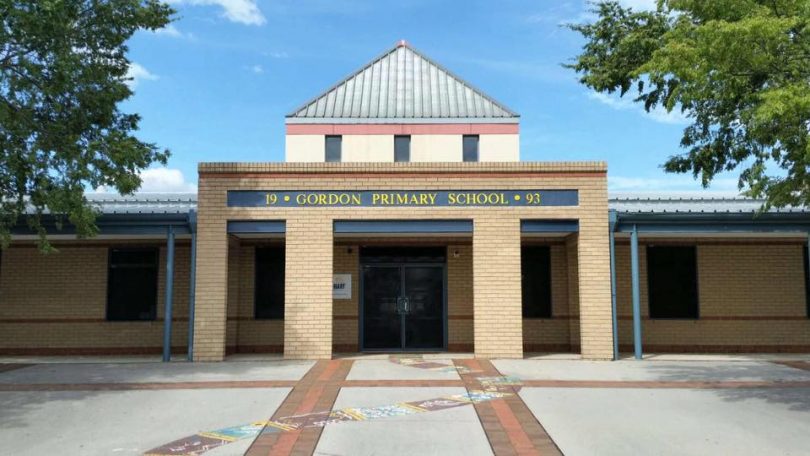
Gordon Primary School, where Murray Bruce has been principal for the past 16 years. Photo: ACT Education Directorate.
The ACT continues to record high rates for literacy and numeracy each year, and Murray is confident this will continue.
“This doesn’t mean we can’t still improve and doesn’t mean we don’t have pockets of kids who are not quite achieving as much as others,” he says. “There is still work to be done, but in general our directions are excellent and if we stay the course, we’ll be a jurisdiction other places can look up to.”
Murray says he doesn’t have any retirement plans set in stone, but he is involved with programs for coaching and mentoring school principals and is happy to continue helping future generations in this role.
“I’m really just going to wait and see what opportunities come up,” he says.













